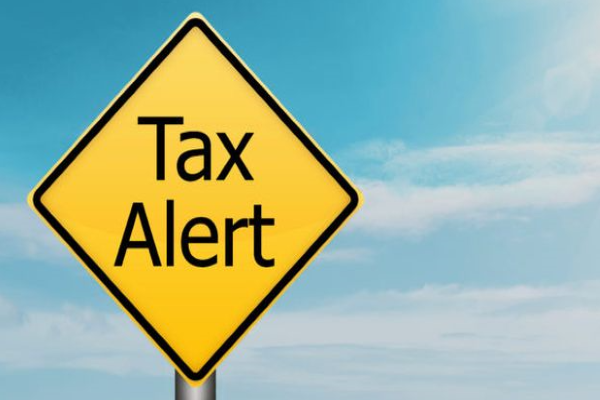Take a look at our July 2022 snapshot of taxation developments that may affect your business, investments or superannuation. Please get in touch if you have questions or need assistance.

ATO guidance update: Debt relief and waivers
Tax-related debts are sometimes ignored by those of us struggling with inflationary pressures and sky-high energy prices. However, this may not be the wisest course of action since these disregarded debts are likely to continue to accumulate general interest charges.
Generally, the ATO won’t pursue a debt if it’s satisfied that the debt is uneconomic or irrecoverable at law. However, in certain instances, such as where a taxpayer has a significant history of non-compliance or where there are public interest considerations, the ATO may pursue a debt even though it is uneconomical.
A simpler way of dealing with a tax debt, particularly if you’re experiencing hardship, is to apply to the ATO to be released from it.
You can make a formal application and may be released from a tax debt if you’re experiencing “serious hardship”. For the ATO, this means judging that the payment of your tax liability would result in you being left without the means to afford basics such as food, clothing, medical supplies, accommodation or reasonable education.
To decide whether serious hardship exists, the ATO will use an income/outgoings test and an assets/liabilities test.
The income/outgoings test assesses your capacity to meet your tax liabilities from your current income, taking into account your household income and expenditure. The assets/liabilities test looks at what equity or assets you may have access to, as an indication of whether you can pay – for example, your residential property, motor vehicles, life insurance or annuity entitlements, collections, furniture and household goods, or tools of trade.
The ATO will also consider a range of other relevant factors, depending on your particular circumstances.
What might the Federal Government’s proposed electric car discounts mean for taxpayers?
One of the new Federal Government’s policies, announced as part of its election platform, is to make certain electric vehicles exempt from import tariffs, and from the fringe benefits tax (FBT) imposed on electric cars that are provided through work for private use. These exemptions would apply to vehicles valued below the threshold for the luxury car tax for low-emission vehicles.
Under the current statutory formula for valuing car fringe benefits, electric cars are arguably at a disadvantage compared to fossil fuel-consuming cars, but the FBT exemption proposal would tilt the balance very much back in favour of the electric car.
For example, an employee on a salary of $150,000 who salary-packages a $60,000 electric car with annual running costs (including lease payments) of $17,000 net of GST could expect to be around $4,500 better off annually after tax, due to the change in FBT treatment.
The exemption from the 5% import tariff should also make certain electric vehicles cheaper for Australian consumers and businesses.
The government has indicated that the electric car discount policy would be reviewed after three years, taking account of developments in the adoption of electric cars by that time.
Tax benefits for unused “carry forward” concessional superannuation contributions
From 1 July 2019, new rules were introduced that allow eligible people to claim tax deductions for the unused portion of their super concessional contributions caps from prior years. This brings tax deductions into the current financial year that would have otherwise been in excess of the ordinary annual concessional contribution cap.
A concessional contribution is defined as a contribution to a super fund before tax. This type of contribution is taxed at a flat rate of 15% in your fund.
Concessional contributions can come from several sources: from your employer, from pre-tax salary sacrificed contributions you may elect to make through your employer, and from contributions you make personally and claim a tax deduction. The combined total of these contributions counts towards your concessional contribution cap.
The 2022 financial year concessional contribution cap is $27,500, an increase from the previous financial year’s $25,000.
The new rules give allow you to look back on each financial year from 1 July 2018 to calculate the “unused” portion of your concessional contributions cap in each financial year. You can then “carry forward” and, when desired, “catch up” and claim the unused portion in a later financial year, which can achieve a better tax outcome for that financial year, and maximise the amount you’re able to contribute to super.
You can only claim unused super contributions from previous years if your total super balance is less than $500,000 at 30 June in the financial year before the year when you make catch-up contributions, and unused concessional cap amounts can only be carried forward for a maximum of five years.
What are the benefits?
Making a catch-up contribution is an easy way to boost your super balance at a time when you have the financial resources to do so, while offering significant tax benefits. For example:
- Your work patterns and income may fluctuate from year to year. A tax deduction for super contributions may not be needed in a low income year, but may be useful the following financial year if your income is significantly higher.
- Restricted cash flow may prevent you from making super contributions, but you can make catch-up contributions when your situation improves.
- Your usual income may mean there’s no real tax advantage in making super contributions, but if you sell a large capital asset like shares or a rental property, you could have a significant capital gain. You could then make a catch-up super contribution to reduce your taxable income in the year of that sale.
TIP: Concessional superannuation contributions can be a complex area. It’s best to seek professional advice so you can implement the right strategies for your circumstances and maximise your super savings.
Personal super deductions: Remember the notice of intent
If you have made a personal contribution to your super and would like to claim a deduction, it’s important to remember to give the required notice to your super fund before making a claim in your tax return.
A deduction for a personal contribution can only be claimed if the income earned came from your salary and wages, a personal business, investments, government pensions or allowances, superannuation, partnership or trust distributions, or a foreign source.
If you’re aged between 67 and 74 years, you must also meet the work test or satisfy the work test exemption criteria to be able to claim a deduction for any personal contributions made. There are also contribution deduction rules for people aged 75 years or older.
The ATO provides a standard form for giving the required notice to super funds. Many super funds also have their own online forms which can be lodged easily. Your fund will then send a written acknowledgment to the ATO indicating that it’s received a valid notice from you. Only then can you claim the deduction in your tax return.
Please get in touch with your local Accru Harris Orchard advisor if you would like to know more about how these superannuation and tax developments affect you. We also offer a range of taxation services to help you meet tax requirements.
Clients should not act solely on the basis of the material contained in Client Alert. Items herein are general comments only and do not constitute or convey advice per se. Also changes in legislation may occur quickly. We therefore recommend that our formal advice be sought before acting in any of the areas. Client Alert is issued as a helpful guide to clients and for their private information. Therefore it should be regarded as confidential and not be made available to any person without our prior approval.
